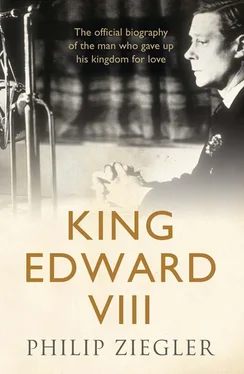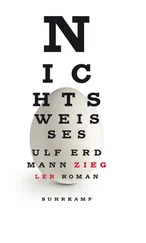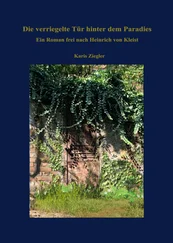Any fears that the Australians might receive the Prince with less exuberance than he had found elsewhere were quickly dispelled. ‘I can’t begin to tell you how amazingly enthusiastic the Melbourne people are,’ he told his mother, ‘and they’ve kept it up ever since I landed and it’s really frightfully touching, and I do appreciate it all so much. It beats anywhere in Canada.’ 77Always it was the ex-service men who were to the fore; even when he was in the comparative safety of a car he might find himself plucked from the back seat and ‘tossed cheerfully about the streets’ by the excited ‘diggers’. 78It was gratifying, it was exhilarating, but it was also alarming. One drive to the Town Hall, scheduled to take five minutes, lasted an hour. The folded hood was torn off the back of the car and the running boards trampled away by a crowd determined to get near its Prince. 79To see him from close quarters was desirable, to touch him best of all; he was prodded, patted, slapped on the back, shaken by the hand, so that by the end of each day his body was covered with bruises and his hands swollen and aching. The Prince had worked like a slave, Halsey told the King, and had been totally successful. ‘On every hand I hear most wonderful things as a result, such as people who, before his arrival, refused to have anything to do with his reception or allow their children to take part in the various functions, completely coming round and being, if possible, more enthusiastic than any of the others.’ 80
Such experiences were as emotionally draining as they were physically demanding. When coming on top of the endless formal banquets, receptions, parades, receiving of addresses, hospital visits, balls and relentless speechifying, it is small wonder that the Prince should have been worn out by the time he had finished at Melbourne. Things were a little easier when he left the great city centres and travelled by train thousands of miles across the Australian plains, but even there he could rarely relax for long since at every suggestion of a station scores or hundreds of locals would gather, some of them having travelled thirty or forty miles by cart to see the Prince pass. They could not be disappointed. When he occasionally failed to appear, as at Gilgandra, he was ‘counted out’ by the indignant crowd, who chanted from one to ten and ended with a resounding ‘OUT!’, a traditional Australian way of registering disapproval. On the return journey he made sure to present himself and the forgiving inhabitants counted him in again. 81
He never slept well in a train and the lack of sleep added to his cumulative exhaustion. His morale was not improved when the royal train was derailed in the depths of Western Australia. The only casualties were the Prince’s doctor, who cut his leg, and the pride of the Minister of Works, who was trapped in the lavatory, but if the accident had occurred a hundred yards further on, where the embankment was steeper, it could have been far more serious. The Prince preserved admirable sang-froid; as he clambered from the wreckage he remarked cheerfully: ‘Well, anyway, at last we have done something which was not on the official programme.’ 82But though his entourage thought that he was unscathed by the incident, he admitted to his mother that he had been badly shaken: ‘I live so much on my nerves nowadays that they get very easily upset and I just loathe a train now and have “the wind up me” the whole time!!’ 83
Brisbane was the city the Prince most dreaded visiting, for Queensland was ‘bolshie or rather full of Sinn Feiners and the Labour premier is a hot Irish RC’. 84In the event, not a red flag was to be seen and the crowds were as welcoming as any in Australia. The Acting Premier, who at one point had threatened to boycott the visit, became almost embarrassingly fond of his visitor and in his determination to say goodbye chartered a special aircraft to pursue the Prince to the frontier and, missing him there, continued the chase many miles into New South Wales. 85For Grigg, the most memorable feature of the stay at Brisbane was the Shakespearean Ball, at which a gentleman dressed as Shakespeare presented a series of his characters to the Prince: ‘It was a very mixed show, and Shakespeare himself became somewhat confused at times, introducing Othello as Julius Caesar until corrected by the indignant Moor in question.’ 86It is unlikely that the Prince would have been much the wiser if Othello had been presented as Ancient Pistol or one of the witches from Macbeth .
Adelaide should have been something of a rest cure, since the programme was less onerous than elsewhere and the Governor’s wife, Lady Weigall, was a woman of common sense and great kindness as well as a close friend of Freda Dudley Ward. ‘It cheered him up no end,’ Godfrey Thomas wrote thirty years later, ‘to have found in Australia someone with whom he could talk freely about his lady-love.’ 87Lady Weigall mothered and cosseted him, at a time when he craved for such treatment; when he left Adelaide he wrote to thank her for having done so much to boost the morale of ‘a very worn out little boy, who really was beginning to think the whole show too big for him and too much to go thro with’. 88But though the therapy was effective she undid much of the good by encouraging him to stay up every night until 3 or 4 a.m. cooking buttered eggs in her boudoir. 89The Prince left Adelaide more cheerful but little more rested than he had been on his arrival.
As a result he teetered permanently on the edge of extreme depression. ‘I feel fit enough,’ he told Philip Sassoon in early August, ‘but mentally I’m absolutely worn out. Thank God it’s all over bar the shouting now as I really don’t think I could carry on much longer without the top of my head cracking like an egg and making a mad house my only possible [word omitted] for the remainder of my natural life.’ 90In such a state of mind, trials which normally he would have borne lightly seemed intolerably burdensome, pleasures became pains, inoffensive companions were categorized as the lowest of the low. He had hardly seen a pretty woman yet, he told Sassoon, they were ‘a hen-faced crowd and make me tired’. 91He confused cause and effect; it was because he was tired that they seemed hen-faced. Similarly, the journalists who accompanied the party were not ‘virulent scum’, ‘absolutely spoilt’ and ‘bloody rude to my staff’; 92they were, as he would have agreed when in sounder mind, professionals doing a difficult job with considerable competence – and on the whole giving a most favourable account of all his doings.
Certainly they were sympathetic when, in mid-July, the Prince had something close to a complete breakdown. He lost his voice, rambled off the point in speeches, appeared wan and disconsolate even to those who did not know him well. ‘Renewed sign of nerve strain … very disturbing,’ cabled The Times correspondent; ‘Use utmost influence to save Prince continuance of the terrible strain imposed by many months of public appearances,’ the Morning Post representative urged his editor. ‘Situation at any moment may become serious … He is game to the backbone, but there are limits within sight.’ 93His staff were at one point so alarmed that they insisted the programme be postponed by a week, allowing the Prince a chance to recuperate.
Such messages, suspiciously similar in phrasing, may have been inspired as part of an orchestrated campaign to change the dates of the Prince’s next tour abroad. One of the most pressing causes of his gloom was the knowledge that he would hardly be back in Britain again before he had to set out on an even longer tour of India and Japan. His separation from Freda Dudley Ward would have lasted nearly a year. Even before he left for Australia he had suggested to Lloyd George that Prince Albert should replace him on the Indian tour. The King was displeased when he heard that the matter had been discussed in Downing Street before his son had raised it with him; Frances Stevenson noted with some amusement that he treated Lloyd George coldly at the station when the Prince departed. 94The Prince was mainly alarmed lest he be ‘unconsciously drawn into a conflict between “monarch and premier”. Of course that’s the last thing I want as it w’d probably end in a row between father and son.’ 95The question was temporarily dropped.
Читать дальше












